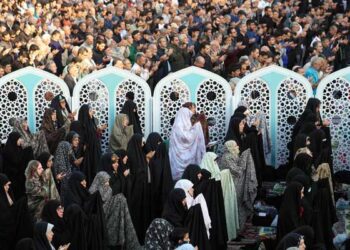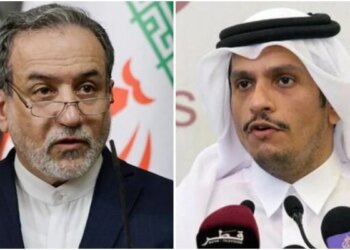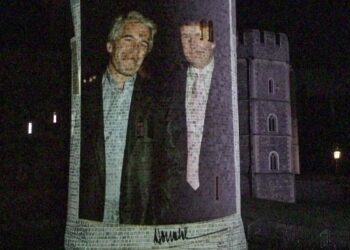Select Language:
- Steve Witkoff is scheduled to meet Iran’s Foreign Minister in Oman.
- Trump is advocating for a new nuclear agreement with Iran.
- President Trump withdrew the US from a 2015 agreement during his first term.
WASHINGTON: U.S. Special Envoy Steve Witkoff is set to meet with Iranian Foreign Minister Abbas Araghchi in Oman on Sunday. This meeting will focus on Iran’s response to a recent U.S. proposal regarding a nuclear agreement, according to a U.S. official’s statement late Wednesday.
On Monday, Iran announced plans to deliver a counter-proposal for the nuclear deal, rejecting the U.S. offer as “unacceptable.” President Trump expressed that discussions would persist.
In a podcast on the same day, Trump indicated he was less hopeful that Iran would agree to cease uranium enrichment as part of a deal with the U.S.
The president has been actively pursuing a new nuclear agreement aimed at limiting Iran’s contentious uranium enrichment activities and has warned of military action against the Islamic Republic if no agreement is reached.
Iran has consistently maintained that it does not intend to develop nuclear weapons, instead focusing on peaceful nuclear energy initiatives.
During his first term, Trump withdrew the U.S. from a 2015 agreement between Iran and world powers. That deal had imposed restrictions on Tehran’s uranium enrichment in exchange for relief from international sanctions.
The strained relations between Iran and the U.S. extend back several decades. Iran claims that the U.S. has meddled in its domestic affairs, referencing incidents such as the 1953 coup against its prime minister and the 2020 drone strike that killed its military commander.
Conversely, the U.S. points to Iran’s support of militant groups in the Middle East, including in Lebanon and Yemen, as justification for viewing Iran as a threat to its ally Israel and American interests in the region.
These militant groups refer to themselves as the “Axis of Resistance” against U.S. and Israeli influence in the Middle East.
On Wednesday, Trump noted that some U.S. personnel were being relocated from the Middle East due to safety concerns, as the region is currently facing heightened tensions.







